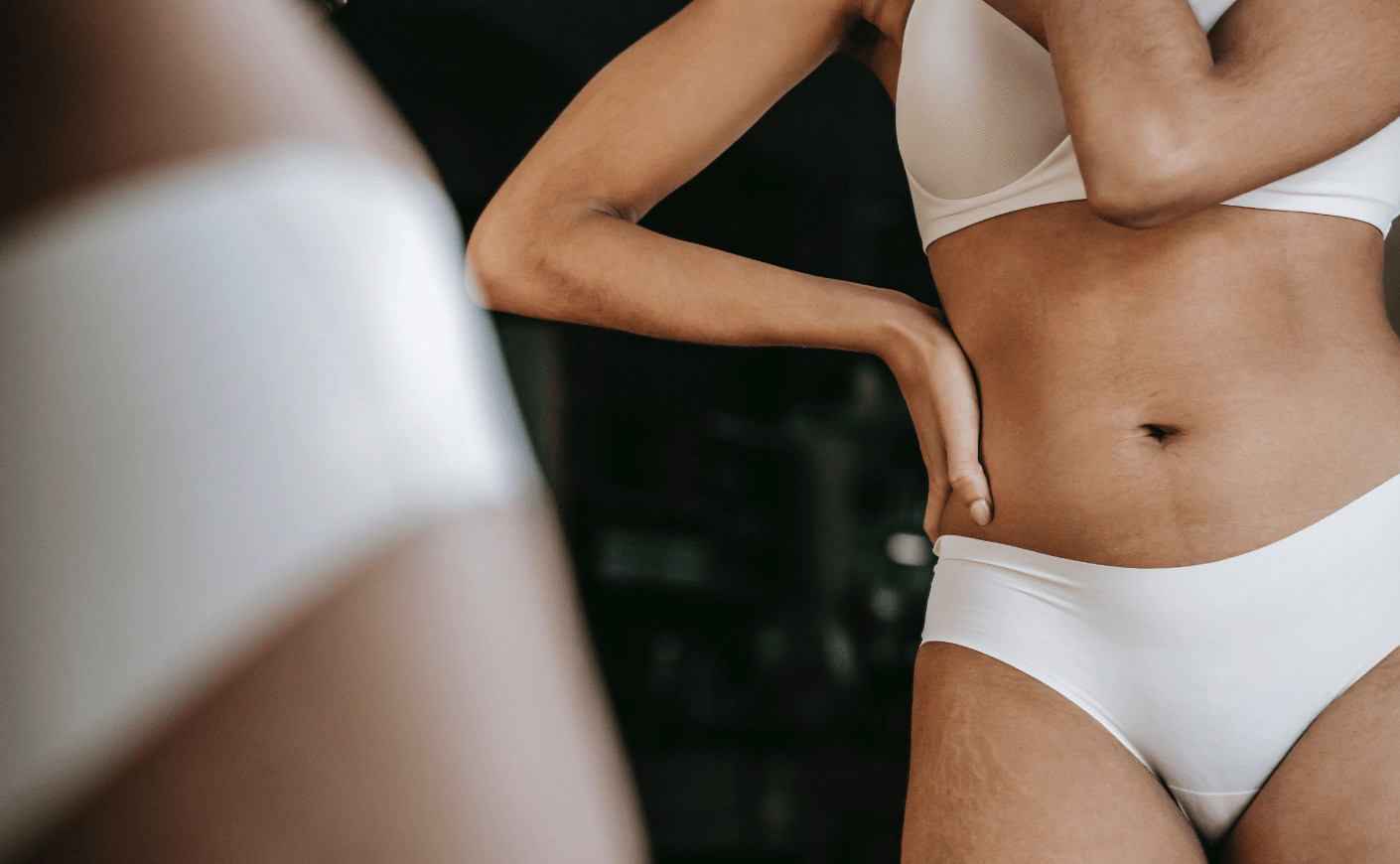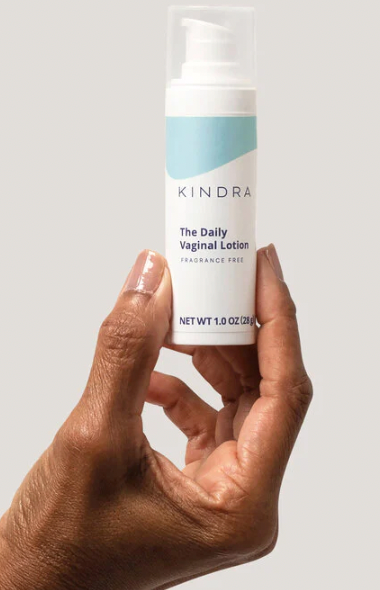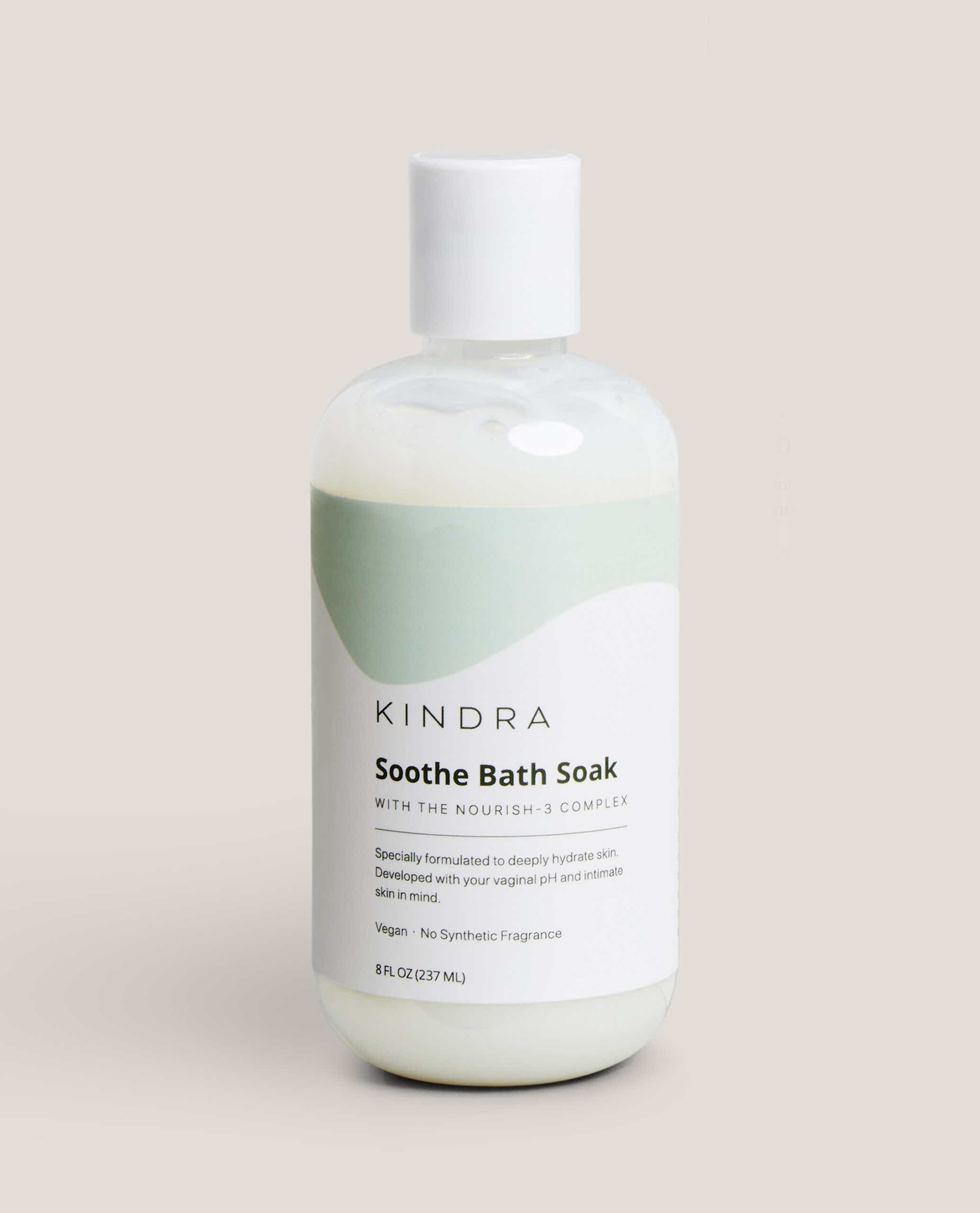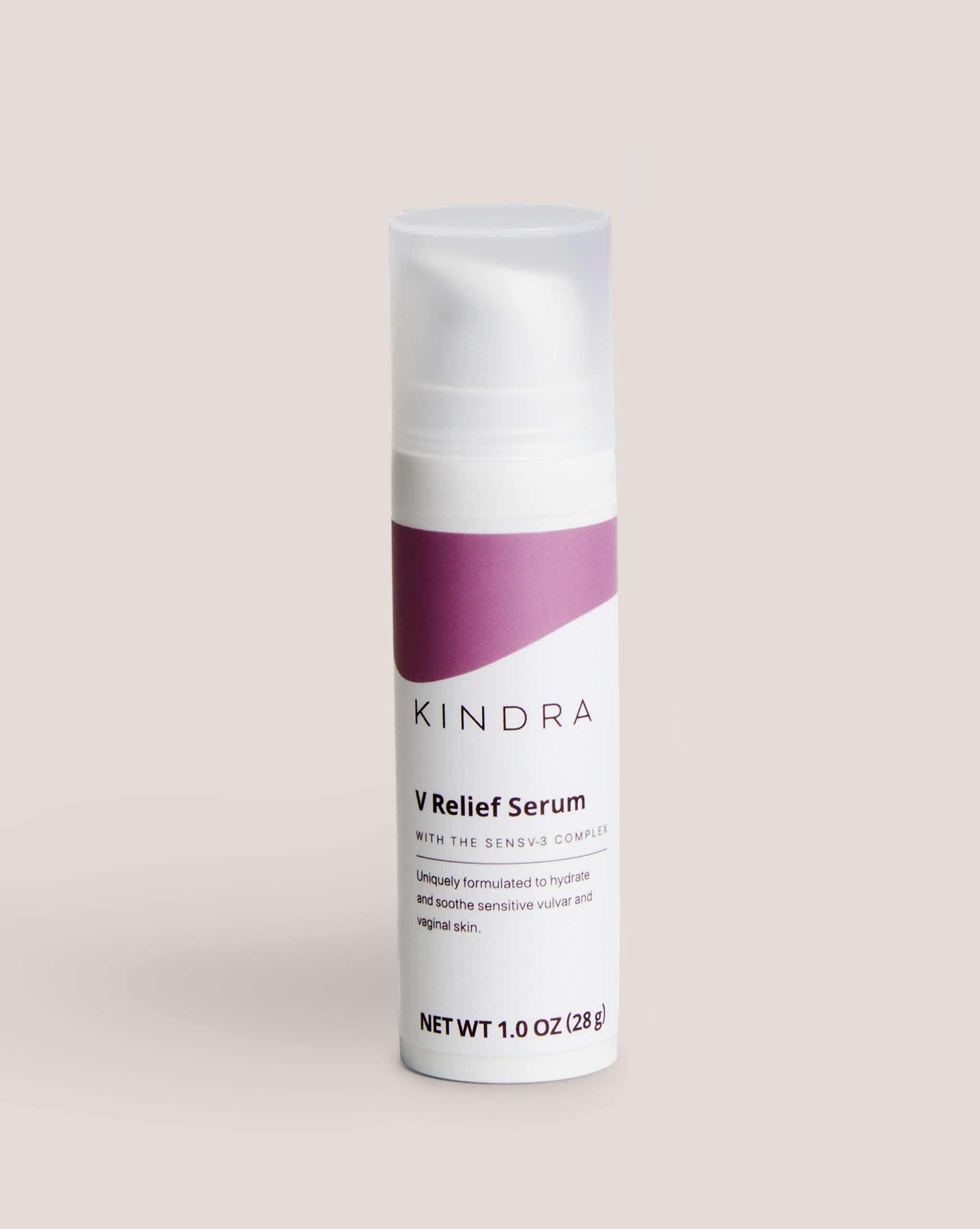If you’ve started transitioning into perimenopause — or if you’re menopausal — chances are you’ve felt occasional vaginal dryness. It’s incredibly common. In fact, more than 75 percent of women experience a noticeable change in their vagina’s natural lubrication. Not only does it make sex more painful, you can also feel discomfort while you’re exercising, walking, and even sitting. “It has a significant impact on women,” says Dr. Suzanne Gilberg-Lenz, an OB-GYN and advocate for integrative women’s health.
It’s also one of the first symptoms of perimenopause, which can begin as early as the mid-30s. “Younger people don’t realize what it is,” says. Dr. Suzanne. “They think they have a yeast infection and they’re treating the wrong thing — or they’re reaching for over-the-counter solutions that aren’t really appropriate.”
A hydrating vaginal moisturizer is a great way to start adding moisture back to the area. Kindra — the go-to for estrogen-free peri/menopausal products — sells a super-hydrating daily vaginal lotion that helps soothe the area and provide pretty instant results. More than 95 percent of women reported their intimate area feeling moisturized and/or hydrated after just one day of use. “It’s really helpful to start using the lotion early on,” Dr. Suzanne explains. “It’s not going to prevent the changes that are coming, but it’ll ease you into it.”
It might surprise you, but staying hydrated and moisturized should be a priority from head to toe. “People always talk about their skincare routine for their face, but people need to develop a skincare routine for their vagina,” says Dr. Suzanne.
Below, we asked Kindra’s expert medical advisor some of the most commonly asked questions about vaginal dryness: what it is, what causes it, and — maybe most importantly — how to treat it.
KCM: How common is it for menopausal women to experience vaginal dryness?
Dr. Suzanne Gilberg-Lenz: It’s incredibly common — at least 70 to 80 percent of women will have vaginal dryness when they enter actual menopause. A lot of people get through the first two years without noticing it, especially if they’re already very sexually active and body-conscious. But by year two, it’s extremely common to have dryness. Pretty much everybody in this life stage is going to experience it and it’s not going to go away unless you do something about it.
What causes vaginal dryness?
Estrogen brings blood flow, which brings moisture. So as the levels of estrogen in our bodies naturally decline, the vaginal tissue, microbiome, collagen deposition, and pH balance changes as a response to that loss.
The vaginal tissue also thins out and becomes less elastic, which means it’s more prone to inflammation and abrasion (or breakage). And since the pH and bacterial balance also change, that can promote discomfort, infections, and a sense of dryness.
Does vaginal dryness affect your ability to have an orgasm?
Yes, for two reasons. Firstly: the dryness in and of itself is going to make it hard to have sex or masturbate. That’s because the tissue is uncomfortable. It’s not lubricating, so it’s going to hurt.
Secondly, if there’s less blood flow and there’s less tissue responsiveness, that’s not good for pleasure at all. You’re not going to have the same kind of engorgement or lubrication — the blood flows differently, and the loss of elasticity in the canal makes it uncomfortable. It’s kind of a double whammy. But I want to make sure people understand it’s not the end of orgasms. There are so many things you can do to combat vaginal dryness.
So how can you increase comfort and pleasure if you’re experiencing vaginal dryness?
First and foremost, make sure you’re using a good high-quality moisturizing lubrication. Kindra’s daily vaginal lotion works wonders. I wouldn’t use it necessarily as a lube for sex, but for everyday dryness, it’s fantastic.
I’d also recommend Kindra’s bath soak as an alternative (or additional) way to incorporate moisture. It’s specifically formulated for vaginal tissue that’s experiencing a shift in pH around menopause, so it contains a lot of ingredients that soothe the skin and help it get hydrated and stay that way, without any of the fragrances or unnecessary ingredients that can lead to sensitivity. It’s a really great way to boost up your moisture and make a calming self-care ritual even more beneficial.
If you’re experiencing extreme dryness, sensitivity, or itching, Kindra’s V Relief Serum might be a better option for you. It’s made with a peptide that reduces skin sensitivity and reactivity like stinging and burning, as well as moisturizing ingredients like hyaluronic acid. It’s a great option for people who are currently too sensitive to tolerate a thicker moisturizer like The Daily. By tackling severe discomfort, the serum helps get your skin to the point where you can use something that’s more moisturizing.
In terms of sexual pleasure, it depends on how bad someone’s vaginal dryness is and how long it’s been going on. People frequently want to use “natural lubrication” and I think there are some good kiwi-vine based options out there. But the truth is, silicone-based lubes are the best because they stay slick for a much longer period of time and don’t absorb into the tissue.
Coconut-oil lubes also became very popular, and I think they’re great for moisture, if you’re not sensitive to it. But for sex, they absorb really rapidly into the tissue. And if you use a lube that absorbs into the tissue and pulls fluid in with it, it can actually make more friction. The same thing happens if you use a lube that pulls fluid out, which some of the water-based ones do. That actually creates more tissue sensitivity in a bad way, and friction.
Are there other ways to increase moisture in the area?
You can also use vaginal hormones — those really work the best. It usually takes four to 12 weeks to experience maximum benefits, but putting the hormone back into the vaginal tissue is going to help restore the tissue. Again, for young cancer survivors (or anyone who’s advised not to receive hormone replacement therapy), using Kindra’s daily vaginal lotion is a great hormone-free way to regularly rehydrate the area.
And honestly, it’s a use it or lose it situation. Continue to have sexual activity, because that also brings blood flow to the area, which is really beneficial.
What if your doctor tells you not to take hormones?
As the vaginal tissue continues to change, there are certain procedures you can do. But I really recommend people do this with someone who knows vaginas. In other words, a gynecologist — not a plastic surgeon, dermatologist, or the medi-spa.
There are energy devices, radio frequency devices, and the Mona Lisa laser — which is a carbon dioxide laser — and they work really well to help restore some of the physical characteristics that get lost. The radio frequency device basically creates micro injuries at various depths of the tissue. The body’s response to that inflammation is to repair it by bringing more blood vessels and collagen to the area. So that really helps because now your body is kind of doing what it used to do.
There’s fairly robust data on these devices — they’ve been used for more than a decade, here and in Europe — and I really think in the hands of a skilled professional, the risks are extraordinarily low and the rewards can be very high. For people who can’t use hormones, like in my breast cancer patients, this is a huge game changer.
The information provided on this site isn’t intended as medical advice, and shouldn’t replace professional medical treatment. Consult your doctor with any serious health concerns.












